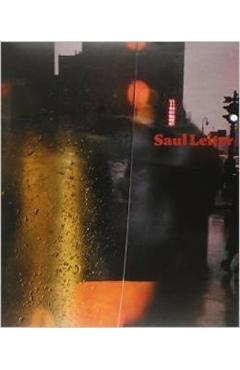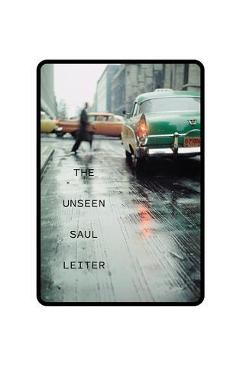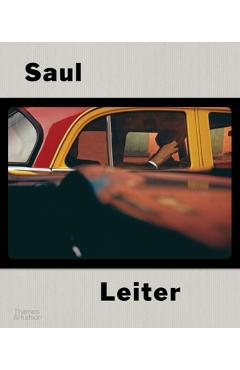Saul Leiter - Brigitte Woischnik

Detalii Saul Leiter - Brigitte Woischnik
Vânzător
libris.ro
Pret
323.64 Lei
323.64 Lei
359.6 Lei
Categorie (vânzător)
Photography
Marca
Brigitte Woischnik
Descriere YEO:
Descriere magazin:
Saul Leiter (b. 1923 in Pittsburgh) has only in recent years received his due as one of the great pioneers of color photography. This can perhaps be attributed to the fact that Leiter saw himself for a long time mainly as a painter. After coming to New York in 1946, he exhibited alongside abstract expressionists like Willem de Kooning before beginning in the late 1940s to take photographs. Like Robert Frank or Helen Levitt, he found his motifs on the streets of New York, but at the same time was visibly interested in abstraction. Edward Steichen was one of the first to discover Leiter\'s photography, showing it in the 1950s in two important exhibitions at New York\'s Museum of Modern Art. Back then color photography was regarded as low art, fit only for advertising. Leiter accordingly worked primarily as a fashion photographer, for magazines such as Esquire and Harper\'s Bazaar . Nearly forty years would go by before his extraordinary artistic color photography was rediscovered. This book, published to mark the first major retrospective of Leiter\'s work anywhere in the world, features for the first time, in addition to his early black and white and color images, his fashion photography, the overpainted nudes, as well as his paintings and sketchbooks.

Saul Leiter - Brigitte Woischnik - Disponibil la libris.ro
Pe YEO găsești Saul Leiter - Brigitte Woischnik de la Brigitte Woischnik, în categoria Photography.
Indiferent de nevoile tale, Saul Leiter - Brigitte Woischnik din categoria Photography îți poate aduce un echilibru perfect între calitate și preț, cu avantaje practice și moderne.
Preț: 323.64 Lei
Caracteristicile produsului Saul Leiter - Brigitte Woischnik
- Brand: Brigitte Woischnik
- Categoria: Photography
- Magazin: libris.ro
- Ultima actualizare: 28-10-2025 01:22:05
Comandă Saul Leiter - Brigitte Woischnik Online, Simplu și Rapid
Prin intermediul platformei YEO, poți comanda Saul Leiter - Brigitte Woischnik de la libris.ro rapid și în siguranță. Bucură-te de o experiență de cumpărături online optimizată și descoperă cele mai bune oferte actualizate constant.
Descriere magazin:
Saul Leiter (b. 1923 in Pittsburgh) has only in recent years received his due as one of the great pioneers of color photography. This can perhaps be attributed to the fact that Leiter saw himself for a long time mainly as a painter. After coming to New York in 1946, he exhibited alongside abstract expressionists like Willem de Kooning before beginning in the late 1940s to take photographs. Like Robert Frank or Helen Levitt, he found his motifs on the streets of New York, but at the same time was visibly interested in abstraction. Edward Steichen was one of the first to discover Leiter\'s photography, showing it in the 1950s in two important exhibitions at New York\'s Museum of Modern Art. Back then color photography was regarded as low art, fit only for advertising. Leiter accordingly worked primarily as a fashion photographer, for magazines such as Esquire and Harper\'s Bazaar . Nearly forty years would go by before his extraordinary artistic color photography was rediscovered. This book, published to mark the first major retrospective of Leiter\'s work anywhere in the world, features for the first time, in addition to his early black and white and color images, his fashion photography, the overpainted nudes, as well as his paintings and sketchbooks.





